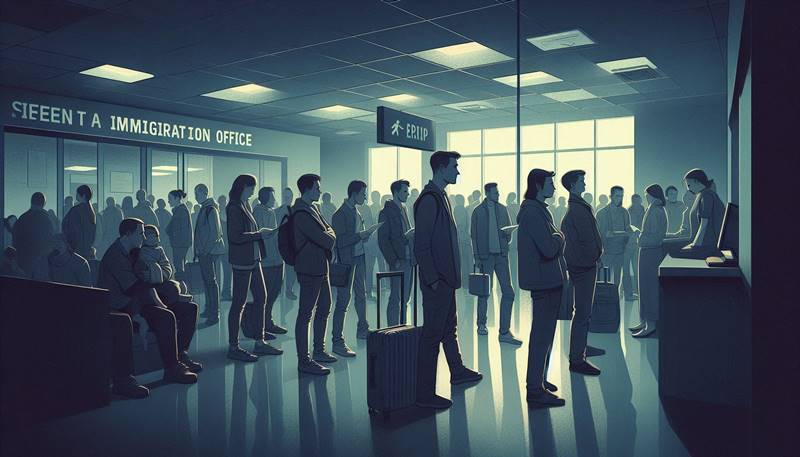Becoming a lawyer in Brazil is a structured process that requires a blend of formal education, practical experience, and passing specific legal exams. As the legal profession is highly respected and regulated in the country, aspiring lawyers must be prepared for a significant commitment of time and effort. In this post, we’ll guide you through the entire process of becoming a lawyer in Brazil, from education to professional licensing, providing you with tips and insights along the way.
1. Obtaining a Law Degree (Bacharel em Direito)
The journey to becoming a lawyer in Brazil begins with earning a law degree, also known as Bacharel em Direito. Universities all over the country offer the degree, and the program typically lasts five years.
What to Expect During Your Law Degree:
- Curriculum: Brazilian law schools have a robust curriculum that covers a wide range of legal topics. Students are required to take courses in constitutional law, civil law, criminal law, administrative law, labor law, international law, and many other fields. The first years of study focus heavily on theory, while the later years may include more practical applications.
- Internship Opportunities: During your studies, it’s highly recommended (and sometimes required) to complete an internship (estágio). Internships are usually offered by law firms, public offices, or corporate legal departments. This practical experience is invaluable for learning how to apply legal theories in real-world situations and gaining exposure to the legal profession.
- Research and Writing: Expect to spend a significant amount of time conducting legal research and writing papers, as law students in Brazil must master these skills to succeed both in school and in practice.
2. Gaining Practical Experience (Estágio)
While studying for your law degree, it’s important to take on practical internships. These internships allow you to gain hands-on experience working with clients, drafting legal documents, and attending court proceedings. Many Brazilian universities include internships as a mandatory part of the curriculum, helping students to prepare for the professional world.
Why Internships Matter:
- Real-World Exposure: Working in a legal environment helps students understand how law is practiced in Brazil, which is often different from what is taught in textbooks. They learn how to interact with clients, manage case files, and support senior lawyers.
- Networking: Internships also offer opportunities to build a professional network. The connections made during internships can lead to future job offers or recommendations.
- Career Direction: Many students use internships as a way to explore different areas of law before deciding which specialization to pursue. For instance, an internship at a corporate law firm might appeal to some, while others may prefer working with human rights organizations.
3. Taking the Brazilian Bar Exam (Exame da Ordem dos Advogados do Brasil)
Once you have earned your law degree, the next major step in becoming a lawyer in Brazil is passing the Exame da Ordem dos Advogados do Brasil (OAB), commonly referred to as the Brazilian Bar Exam. This exam is mandatory for anyone who wants to practice law in the country and obtain a lawyer’s license.
The Structure of the OAB Exam:
- First Phase: The first part of the exam is a multiple-choice test that assesses your knowledge of various areas of Brazilian law, including constitutional law, criminal law, civil law, and ethics. The test consists of 80 questions, and candidates must achieve a passing score to move on to the second phase.
- Second Phase: The second phase is written and includes essay questions and a practical case where you will need to draft legal documents. This phase tests not only your theoretical knowledge but also your ability to apply legal principles in practice.
- Study Tips: Preparing for the OAB exam requires thorough studying and, for many candidates, enrolling in preparatory courses (cursos preparatórios). These courses focus on exam techniques, sample questions, and mock exams to help candidates feel confident on test day. Regular study, understanding legal precedents, and practicing past exams are crucial to success.

4. Registering with the Brazilian Bar Association (OAB)
After successfully passing the OAB exam, the next step is to register with the Ordem dos Advogados do Brasil (OAB), Brazil’s national bar association. Only after registration are you officially authorized to practice law in the country.
Why OAB Membership is Important:
- Licensing: Without OAB registration, you cannot represent clients in court or provide legal consultation. The OAB license is proof that you meet the legal requirements to practice law.
- Professional Development: The OAB offers a variety of resources for new lawyers, including continued education opportunities, seminars, and legal events. Being a part of this community helps lawyers stay updated on changes in the law and professional best practices.
- Ethical Standards: The OAB upholds ethical standards for legal professionals, and all members are required to adhere to a strict code of conduct. Violations of this code can result in penalties, including suspension or loss of the right to practice law.
5. Choosing a Legal Specialization
Once you are licensed to practice law, the next decision involves choosing a legal specialization. While some lawyers in Brazil work as general practitioners, most opt to focus on a specific area of law. Common legal specializations include:
- Civil Law: Handling disputes between private individuals or organizations over contracts, property, or family matters.
- Criminal Law: Representing clients accused of crimes, from minor offenses to serious felonies.
- Corporate Law: Advising businesses on legal matters, such as mergers, acquisitions, and contracts.
- Labor Law: Focusing on disputes between employers and employees, including issues like unfair dismissal or unpaid wages.
- Environmental Law: Representing cases related to environmental regulations and sustainable practices.
Specializing in one area of law often allows lawyers to build deeper expertise, attract more specific clients, and charge higher fees.
6. Pursuing Advanced Legal Education
While not mandatory, many lawyers in Brazil choose to continue their education after obtaining their law degree and OAB license. Advanced degrees, such as a Mestrado (Master’s degree) or Doutorado (Doctorate) in law, can open doors to academic positions, research opportunities, or specialized legal careers.
Benefits of Continuing Education:
- Increased Expertise: Advanced degrees allow lawyers to gain deeper knowledge in their chosen field, giving them a competitive edge in the job market.
- Academic and Teaching Opportunities: Many Brazilian law schools hire professors with advanced legal degrees, providing another career path for lawyers interested in academia.
- Networking: Graduate programs offer opportunities to build relationships with professors, researchers, and fellow students, many of whom may become influential colleagues in the legal field.
7. Navigating the Legal Job Market
Once you’ve obtained your OAB license and chosen your specialization, it’s time to navigate Brazil’s legal job market. The legal profession in Brazil offers various opportunities, ranging from private practice to public service.
- Private Practice: Many lawyers in Brazil start their careers at law firms, where they can work on a wide range of cases or specialize in a particular field. Others may choose to open their own law practice, offering legal services to individual clients or businesses.
- Public Sector: Lawyers can also work in government roles, such as prosecutors, public defenders, or judges. To become a judge or prosecutor in Brazil, you must pass a highly competitive public examination (concurso público), which assesses your legal knowledge and ability to serve in the judiciary.
- Corporate Counsel: Many companies in Brazil employ in-house legal teams to handle internal legal matters, including contracts, mergers, and regulatory compliance.
The Rewarding Path to Becoming a Lawyer in Brazil
In conclusion, becoming a lawyer in Brazil is a challenging yet rewarding process that requires a commitment to education, practical experience, and continued learning. The journey involves completing a five-year law degree, gaining hands-on experience through internships, passing the rigorous OAB exam, and registering with the Ordem dos Advogados do Brasil. From there, aspiring lawyers can specialize in a particular field of law and continue their education to advance their careers.
The legal profession in Brazil offers diverse career opportunities in both the private and public sectors, and those who achieve cybersecurity maturity within this field have the chance to make a significant impact on clients, communities, and the broader legal landscape. By following these steps and making thoughtful career decisions, you can successfully become a lawyer in Brazil and thrive in this respected profession.


